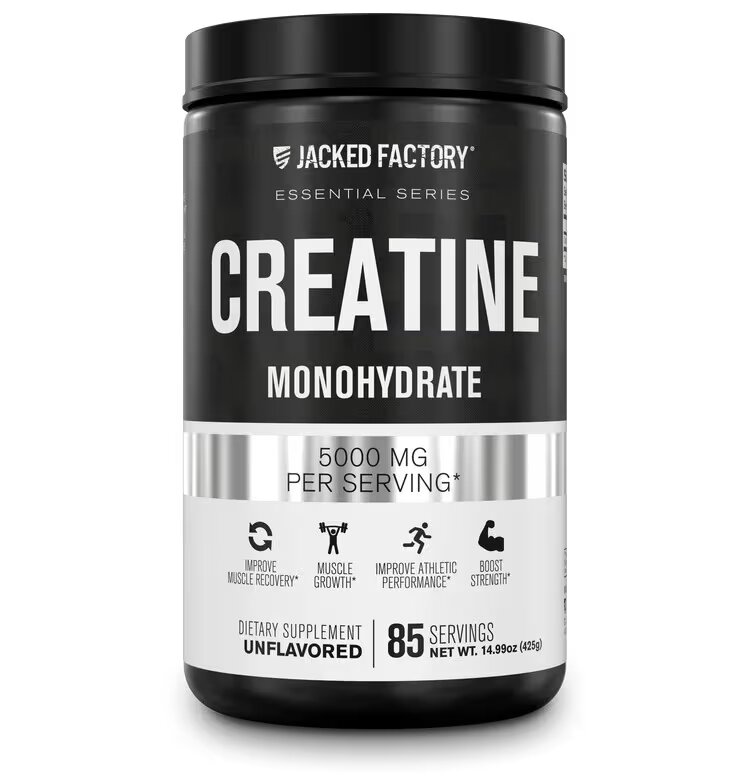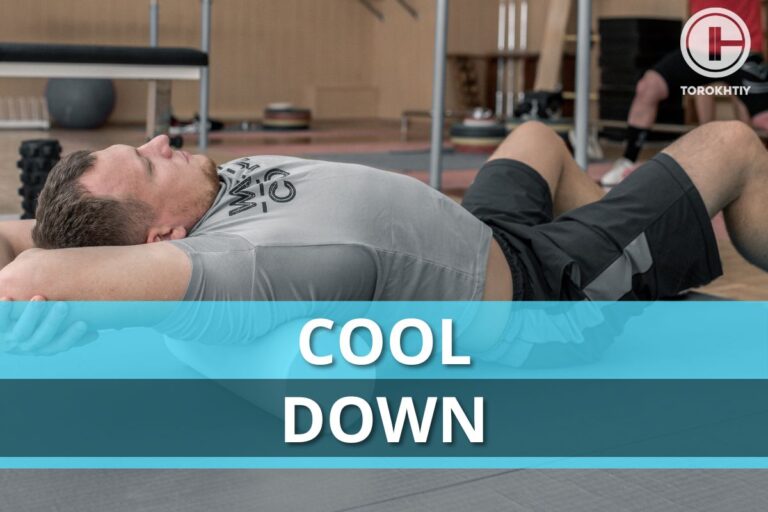Creatine Cycle: Is it Necessary for Optimal Results?
If you’ve been taking creatine for a while, you may be wondering if you need to cycle off occasionally to maximize the benefits from this supplement. An example of a creatine cycle would involve taking creatine every day for several weeks, and then taking a full week off.
So, should you cycle creatine, or is keeping a specific creatine schedule unnecessary? Keep reading to find out.
Is creatine cycle necessary for optimal results? For regulating your body’s natural supply of creatine may be considering a creatine cycle. However, no conclusive evidence shows that supplementation affects the body’s ability to produce creatine. It’s better to take a lower dose (1-3g daily) once your muscles are fully saturated.
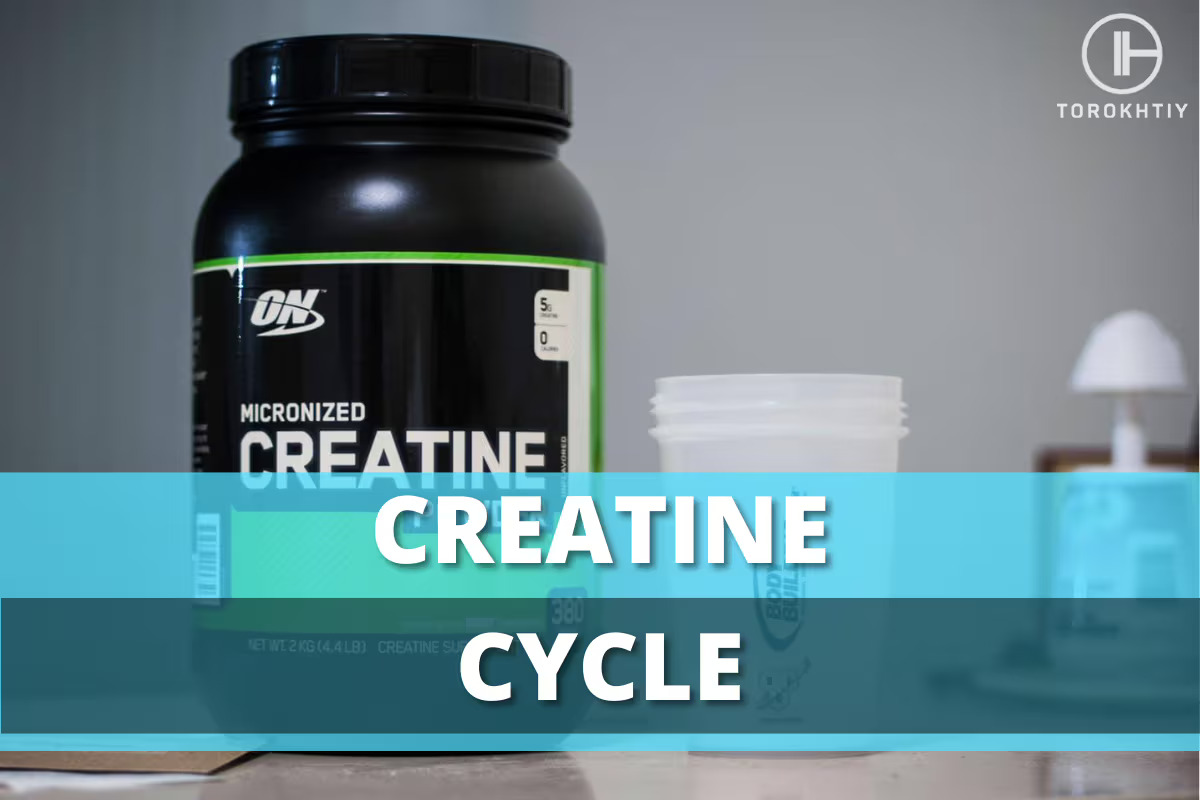
What Is A Creatine Cycle?
Before covering what a creatine cycle is, and why someone may be interested in cycling creatine, let’s quickly cover what creatine actually is. In short, creatine is a nutrient that’s found in meat and naturally produced by the body. The body has creatine stores that are typically ¾ of the way full in most people. By supplementing with creatine, these stores can become 100% full. A typical dose of creatine is 3-5g daily. This will lead the muscles to be fully saturated within around 2-4 weeks. You can also take 20-25g of creatine daily to saturate your muscles quicker, although this isn’t at all necessary, especially if you’re planning on taking creatine indefinitely.
Full saturation leads to numerous benefits for athletes, including better high-intensity exercise performance, reduced fatigue during exercise, and better recovery between workouts. So, what’s the purpose of cycling, and do you need to cycle creatine?
On average, the body uses up around 2g of creatine a day. Typically, between what people eat and the creatine produced by the body naturally, most people get enough creatine to maintain average creatine stores. By taking in 3-5g of extra creatine everyday, you are ensuring your body is getting creatine in a surplus of what it is using. This leads to your creatine stores filling up, or getting saturated.
The question is, what happens once your creatine stores are fully saturated, and you’re still taking in an excess of creatine? Excess creatine is converted into creatinine, which is processed through the kidney and excreted in the urine. There may be some concern that this puts unnecessary pressure on the kidneys, and could lead to serious health issues. However, this appears to be exceedingly rare, only seeming to be an issue for those with existing kidney problems. Another concern is that the body will not be able to naturally produce creatine with consistent supplementation, however, there doesn’t appear to be any evidence to support these claims. Ultimately, someone may want to cycle off creatine in order to avoid issues like the ones listed above, although this is not necessary.
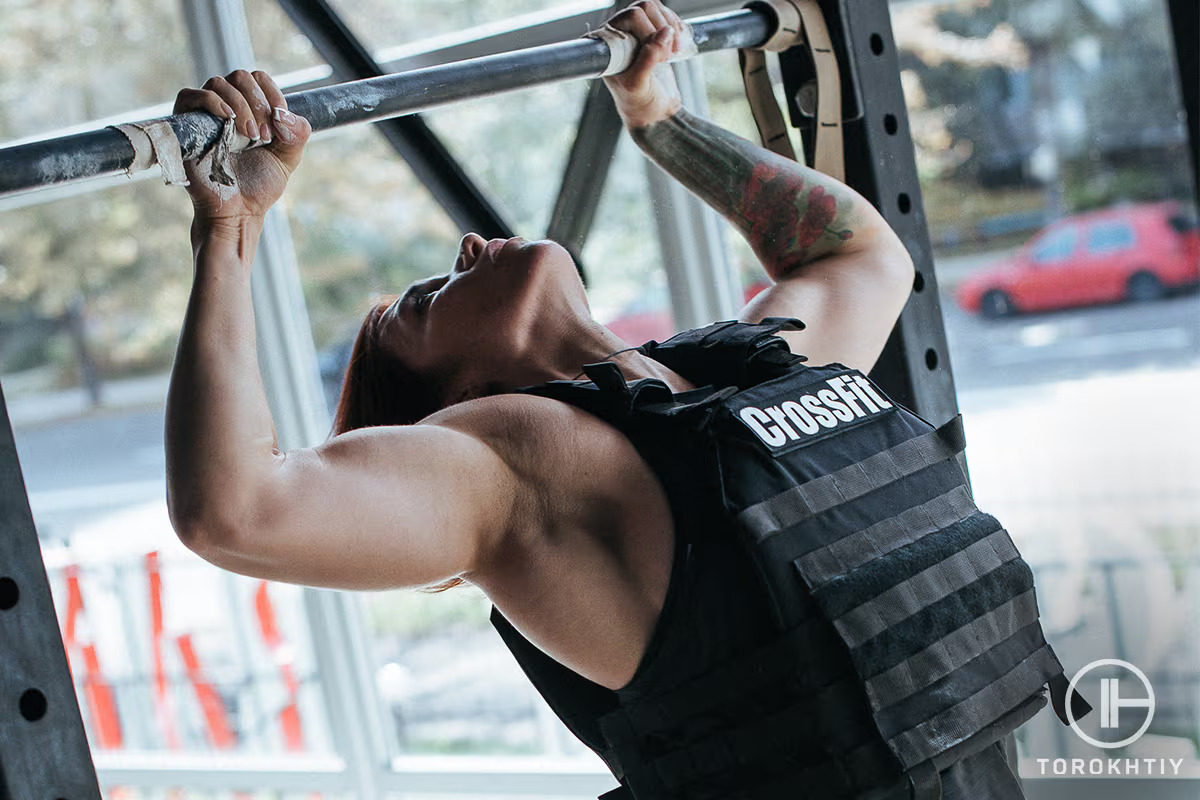
Do I Need To Cycle Creatine?
So, while creatine cycling may seem like a good way to avoid negative side effects associated with creatine, here’s why we don’t believe creatine cycling to be necessary.
First, if you’ve been taking creatine for a while and haven’t experienced any negative side effects, it’s unlikely that your kidneys are having any issues processing creatine. While some people appear to respond negatively to creatine, it is widely regarded as one of the safest supplements someone can take. Of course, if you’re concerned about the health effects of creatine, be sure to consult your doctor before supplementation.
Overall, if your kidneys have trouble processing creatine, you likely shouldn’t be taking it in the first place, making cycling irrelevant.
Next, in regards to the notion that someone needs to cycle off creatine in order to regulate the body’s natural ability to produce creatine, there is no conclusive evidence to suggest this is the case. Ultimately, there’s no reason to be concerned about affecting your body’s ability to produce creatine when supplementing.
On top of there not being any major health concerns with regular creatine use, there’s another major reason you probably shouldn’t cycle off creatine. This is because it may affect your saturated creatine levels, leading to less significant effects on your performance. By cycling off creatine, your creatine stores will likely lower slightly. When you cycle back on, it will take some time to fully saturate them again. This means you’ll be spending less time with fully saturated creatine stores, leading to less consistent benefits to supplementation. While this likely won’t be a major issue if you’re only cycling off for a week or two, it’s still something to keep in mind.
Overall, if you’re concerned about taking in excess creatine, there’s a better solution than cycling off. We simply recommend taking a slightly lower dose of creatine in order to maintain fully saturated levels. Instead of taking 5g of creatine a day, consider taking 3g instead. This will keep your creatine stores saturated, without consuming significant amounts of creatine that will just be excreted anyways. This is also a good way to save a bit of money on long-term creatine supplementation. You can consider switching to a lower dose once your muscles are fully saturated with creatine, usually after 2-4 weeks or less with a higher daily dose.

Does Chronic Intake Of Creatine Affect The Endogenous Synthesis Of Creatine In The Body?
One of the most common concerns with consistent creatine use is that it will affect the body’s natural ability to synthesize creatine. So, is this true?
While many have theorized that consistent supplementation with creatine will affect the body’s ability to produce creatine, there is no conclusive evidence to back up this claim. So if you are concerned about this, it doesn’t appear to be true.
As mentioned above, consistent supplementation of creatine appears to be completely safe in the vast majority of individuals. With creatine being one of the most widely researched sports supplements of all time, if it seriously affected the body’s ability to naturally produce creatine, it would likely be a well-known fact by now. The fact that no study has proved this claim leads us to believe it is simply a theory that got mistaken for fact somewhere along the line.

In What Cases Can Creatine Cycling Really Be Beneficial?
As mentioned above, there does not appear to be many real use cases for cycling off creatine. With health risks of consistent creatine use being fairly rare, and cycling potentially lessening the effects of creatine on performance, why would someone want to cycle off creatine?
There’s one specific case where cycling off creatine may be useful, and it relates to weight gain associated with creatine. Fully saturating creatine stores is associated with a fairly significant amount of weight gain, usually around 1-2kg. While this isn’t a major concern for most people, those trying to make weight to compete at a certain weight class need to be hyper-aware of their bodyweight. Every pound matters in these scenarios, so cycling off creatine could make a major difference. In the case that somebody about to cut weight class is interested in cycling off creatine, it appears that avoiding creatine for 4-6 weeks after full saturation will lead to normal creatine levels, and a slightly lower bodyweight.
It’s worth noting that even though an athlete will make weight easier, they will also be losing the performance benefits associated with creatine supplementation. It may ultimately be better to lose the weight in other ways, especially considering the athletic benefits of creatine saturation. Therefore, while creatine cycling may be useful for making weight, it may be detrimental for an athlete’s overall performance as well.

How To Cycle Creatine
So, while we believe creatine cycling is largely unnecessary, you may still be wondering, how should you cycle creatine? Whether it’s for general health, or weight loss purposes, here are a few tips for cycling off creatine.
1. Don’t Cycle Off For Too Short
This applies to those looking to lose weight by cycling off creatine. It appears that it takes around 4-6 weeks for creatine stores to return to normal levels after being saturated. This means it will take that long to lose the extra weight associated with creatine supplementation. So, if you’re planning on cycling off creatine to lose weight for a competition, be sure to give yourself plenty of time in advance to do so.
2. Try A Lower Maintenance Dose Instead
his applies more to those looking to cycle off creatine for general health purposes. If you’re concerned about taking excessive amounts of creatine, consider dropping to a lower maintenance dose instead of cycling off. Once your body is fully saturated with creatine, you likely don’t need 5g a day to maintain this level. Instead, consider taking a lower maintenance dose of 2-3g instead. This should be enough to keep your muscles fully saturated, without taking in too much that will end up getting excreted anyways.
Best Creatine – Jacked Factory Creatine Monohydrate
If you’re looking to buy your first creatine supplement, our top pick is the simple, yet effective Creatine Monohydrate from Jacked Factory. We recommend this product for not only being high-quality, but budget-friendly as well.
Each scoop of Jacked Factory’s supplement contains 5g of creatine monohydrate. This makes it great for a loading dose, but if you’re looking for a slightly lower maintenance dose, you can take half a scoop instead. Each package contains 85 servings at 5g, so this package will last you a long time especially if you’re taking a lower dose everyday.
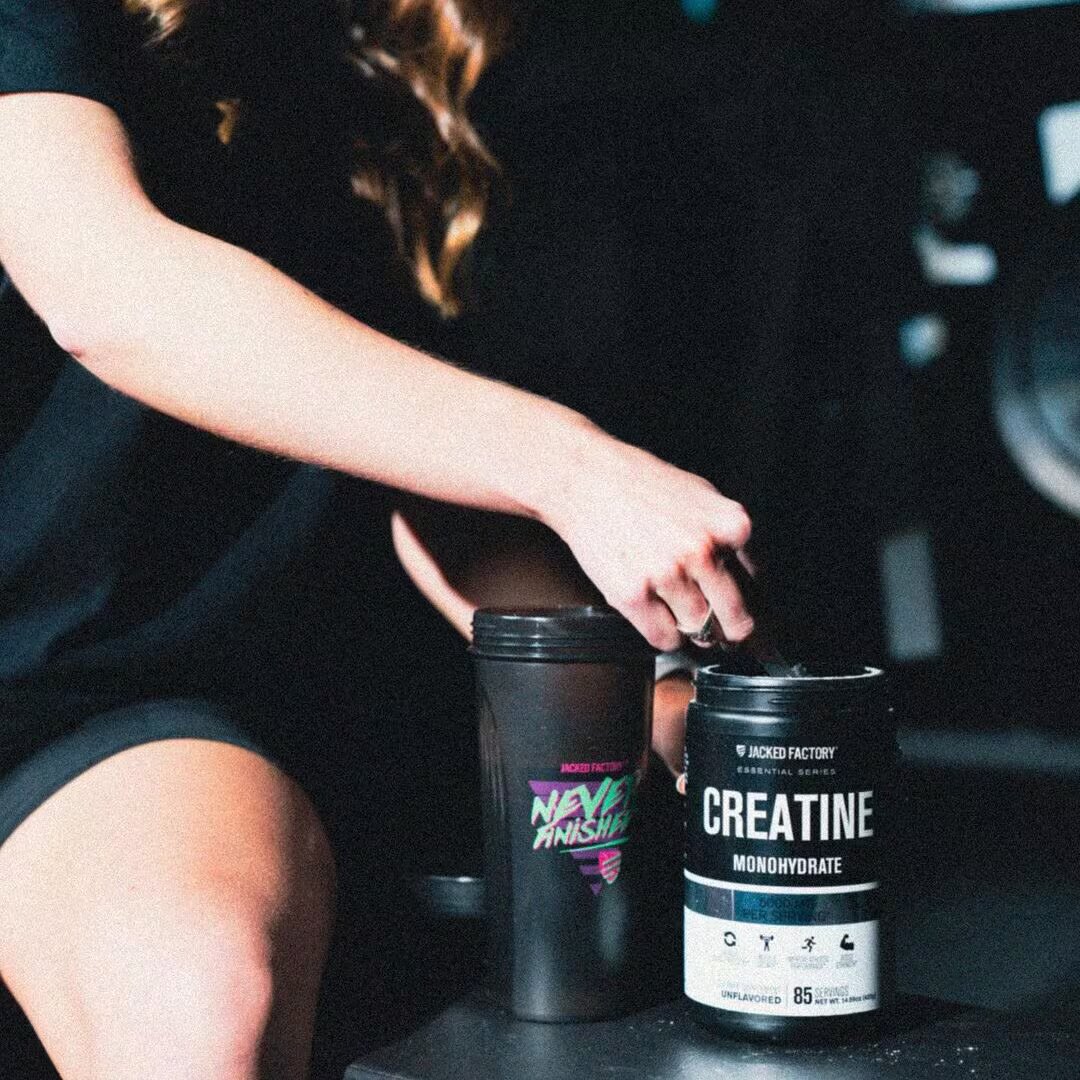
Like most creatine supplements, this only comes in an unflavored variety. For flavored options, you’ll have to go with a more deluxe supplement. However, unflavored creatine is great for mixing in virtually any liquid.
One of the best things about Jacked Factory’s creatine is the price. At only $0.41 per 5g serving, this is one of the most budget-friendly creatine supplements out there. Especially when you consider it’s even cheaper per serving if you’re taking less than 5g, you can’t beat Jacked Factory’s value for money.
FAQ
Is It OK To Not Cycle Creatine?
Yes, although some people recommend cycling off creatine, there don’t appear to be many real benefits to doing so. A better alternative may be to simply take a lower dose of creatine everyday, ideally in the 2-3g range.
Can I Take Creatine Forever?
Yes, creatine has been shown to be safe to take for extended periods of time, and has been shown to provide benefits to nearly all age groups. Especially with creatine appearing to help with the aging process, there’s nothing wrong with planning on taking creatine for the rest of your life.
Is It Good To Cycle Creatine?
Creatine cycling will be largely unnecessary for the vast majority of users. However, one of the main reasons to cycle creatine would be to cut weight, even though this likely isn’t ideal. One of the main factors to consider in this case is creatine cycle length. If you’re looking to make weight by cutting out creatine, we recommend giving yourself at least 4-6 weeks to let your creatine stores return to normal. If you’re wondering how often to cycle creatine, you should only do it when necessary. Other than cutting weight, there’s honestly not much benefit to cycling off at all.
How Long Should I Take Creatine Before Cycling Off?
If you’re planning on cycling off creatine, you should let your muscles get fully saturated first at the very least. This process will usually take around 2-4 weeks with a consistent daily dose of 3-5g, or even less time with a higher dose of 20g a day.
Conclusion
You can put away your Allen wrench, lubricant, and cleaning clothes because we’re done! Now you know everything there is to know about maintaining your treadmill – from why it needs servicing to how to service a treadmill.
What are your experiences with treadmill care? Do you do it yourself, or have a professional take care of it? Do you have any helpful tips to share?
Leave anything you can think of (questions, tips, tricks, suggestions, ideas) in the comments, and let’s help each other out!
Also read:
- How to Measure 5 Grams of Creatine
- When to Take Bcaa and Creatine
- Monohydrate Creatine or Kre Alkalyn
- Best Creatine for Bulking
- Best Vegan Creatine
- What Happens if You Miss a Day of Creatine
- Should You Take Creatine on Days You Dont Workout
- Does Creatine Make You Poop
- Does Creatine Boost Energy
References:
- Richard B. Kreider, “Creatine: State of the Science at the Millennium”, Creighton University, http://tinyurl.com/mu3kkaz5
- Richard B Kreider, “International Society of Sports Nutrition position stand”, PubMed, https://pubmed.ncbi.nlm.nih.gov/28615996/
- Basturk Taner, “The effects of the recommended dose of creatine”, NCBI, https://www.ncbi.nlm.nih.gov/pmc/articles/PMC4421632/
- Ashley Green, “Creatine’s Impact Goes Far Beyond The Weight Room”, Texas A&M Today, https://today.tamu.edu/2017/06/19/expert-creatines-impact-goes-far-beyond-the-weight-room/
- Australian Institute of Sport, “Creatine Monohydrate”, https://www.ais.gov.au/__data/assets/pdf_file/0007/1000501/Sport-supplement-fact-sheets-Creatine-v4.pdf
Why Trust Us?
With over 20 years in Olympic Weightlifting, our team does its best to provide the audience with ultimate support and meet the needs and requirements of advanced athletes and professional lifters, as well as people who strive to open new opportunities and develop their physical capabilities with us.
By trusting the recommendations of our certified experts in coaching, nutrition, dietology, and sports training programming, as well as scientific consultants, and physiotherapists, we provide you with thorough, well-considered, and scientifically proven content. All the information given in the articles concerning workout programming, separate exercises, and athletic performance, in general, is based on verified data. We ensure that you can rely on our professionals’ pieces of advice and recommendations that can be treated as personalized ones which will benefit you and fully meet your needs.
The product testing process is described in more detail here
Author: David Sasha Schulz
Doctor of Chiropractic, BSc Human Biology, CSCS
Strength coach (CSCS) – 10 years
Sasha is a Chiropractor and Kinesiologist practicing in Kelowna, BC, Canada. He has been practicing Chiropractic since 2019, integrating manual therapy, strength training and programming principles, and nutritional strategies to get his patients optimal results. He currently scratches the competitive itch in fitness, and the occasional endurance race, and plays golf and snowboards for fun. He has an interest in all strength and fitness-related sports.

